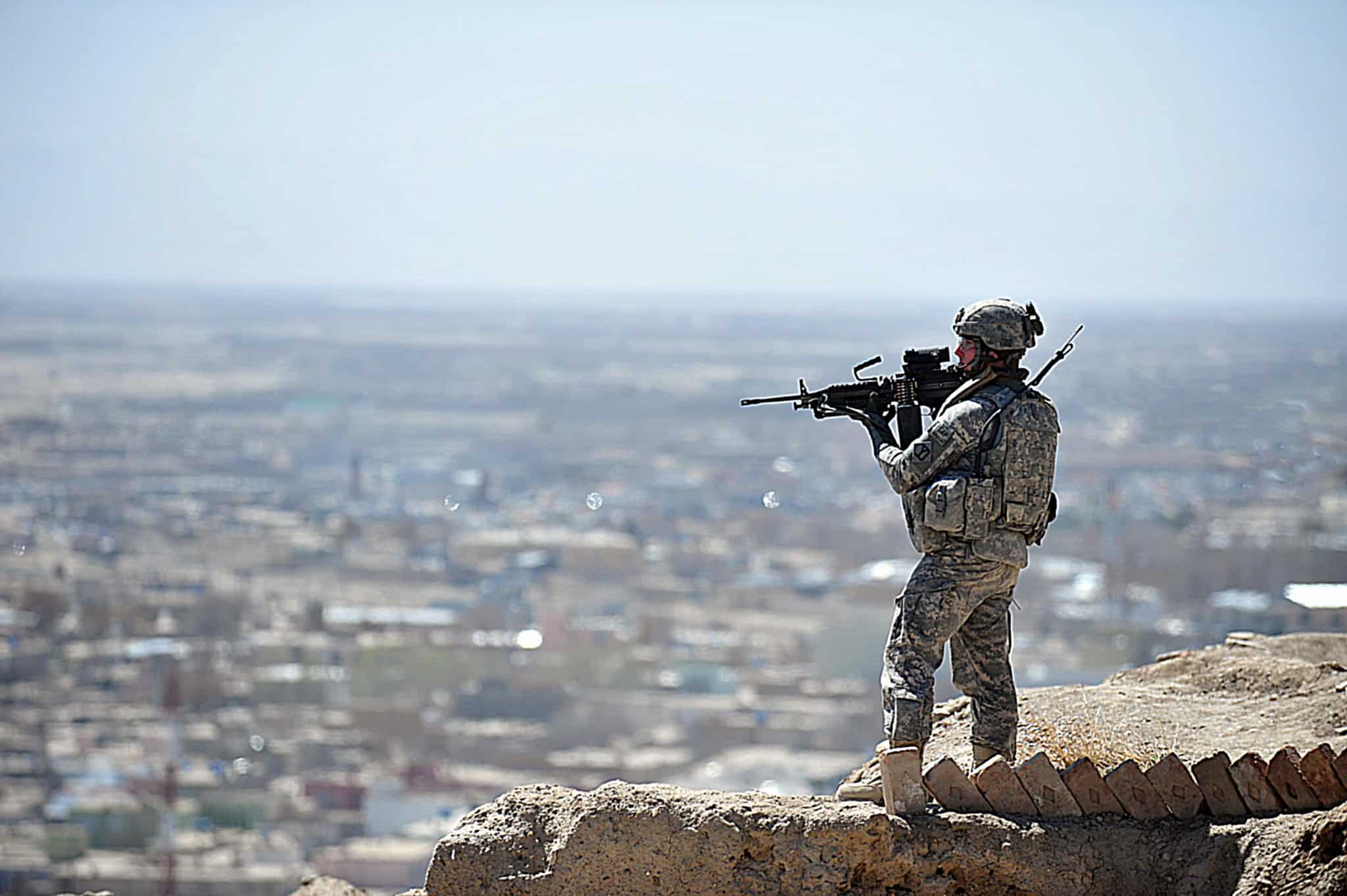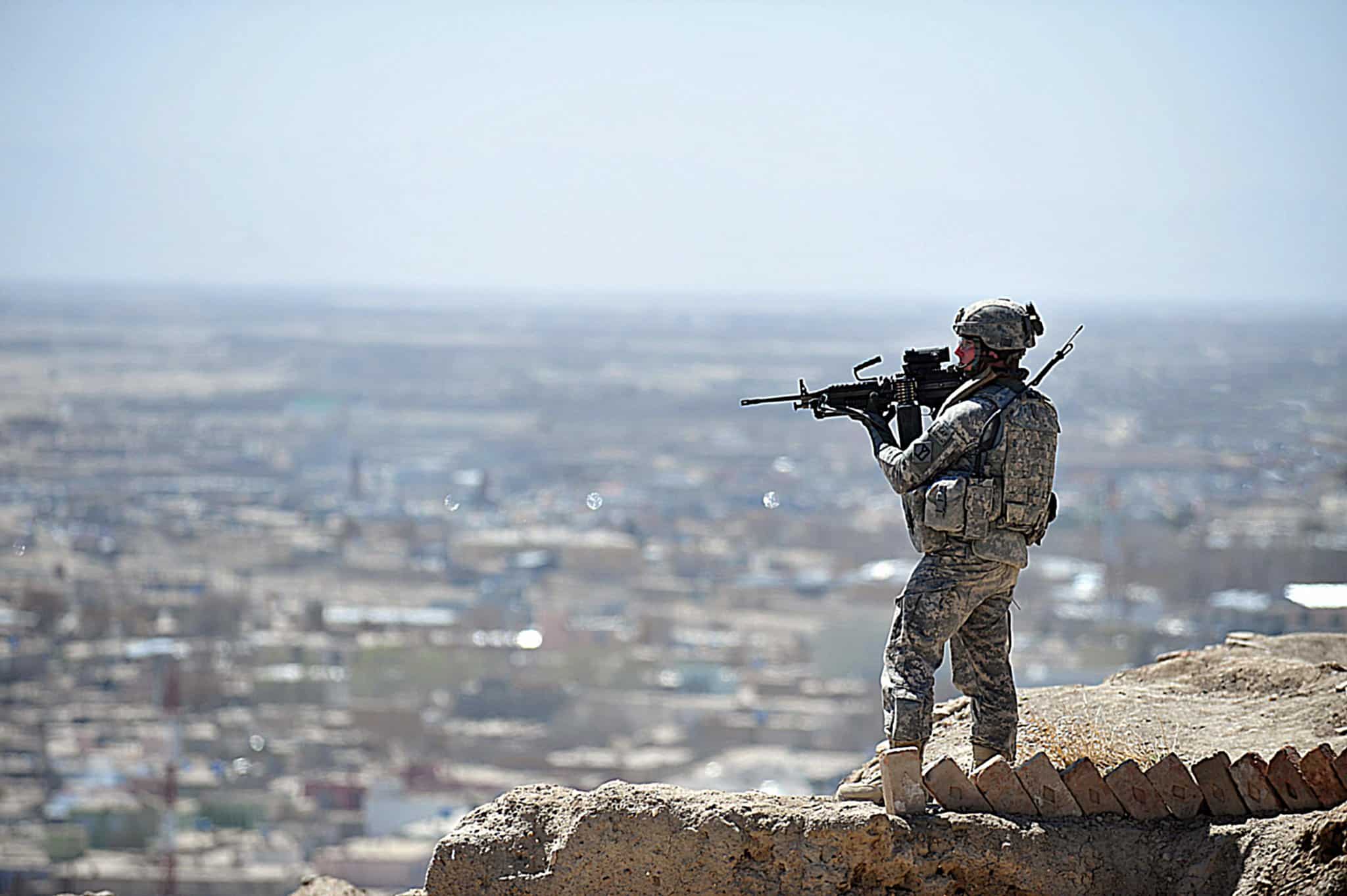Historians of the now seventeen-year old US war in Afghanistan will take note of this past week when the newly-appointed American general in charge of US and NATO operations in the country made a bombshell, historic admission. He conceded that the United States cannot win in Afghanistan.
Speaking to NBC News last week, Gen. Austin Scott Miller made his first public statements after taking charge of American operations, and shocked with his frank assessment that that the Afghan war cannot be won militarily and peace will only be achieved through direct engagement and negotiations with the Taliban — the very terror group which US forces sought to defeat when it first invaded in 2001.
“This is not going to be won militarily,” Gen. Miller said. “This is going to a political solution.”
Miller explained to NBC:
My assessment is the Taliban also realizes they cannot win militarily. So if you realize you can’t win militarily at some point, fighting is just, people start asking why. So you do not necessarily wait us out, but I think now is the time to start working through the political piece of this conflict.
He gave the interview from the Resolute Support headquarters building in Kabul. “We are more in an offensive mindset and don’t wait for the Taliban to come and hit [us],” he said. “So that was an adjustment that we made early on. We needed to because of the amount of casualties that were being absorbed.”
Starting last summer it was revealed that US State Department officials began meeting with Taliban leaders in Qatar to discuss local and regional ceasefires and an end to the war. It was reported at the time that the request of the Taliban, the US-backed Afghan government was not invited; however, there doesn’t appear to have been any significant fruit out of the talks as the Taliban now controls more territory than ever before in recent years.
Such controversial and shaky negotiations come as in total the United States has spent well over $840 billion fighting the Taliban insurgency while also paying for relief and reconstruction in a seventeen-year long war that has become more expensive, in current dollars, than the Marshall Plan, which was the reconstruction effort to rebuild Europe after World War II.
Even the New York Times recently chronicled the flat out deception of official Pentagon statements vs. the reality in terms of the massive spending that has gone into the now-approaching two decade long “endless war” which began in the immediate aftermath of 9/11.
As of September of this year the situation was as bleak as it’s ever been after over a decade-and-a-half of America’s longest running war, per the NYT’s numbers:
But since 2017, the Taliban have held more Afghan territory than at any time since the American invasion. In just one week last month, the insurgents killed 200 Afghan police officers and soldiers, overrunning two major Afghan bases and the city of Ghazni.
The American military says the Afghan government effectively “controls or influences” 56 percent of the country. But that assessment relies on statistical sleight of hand. In many districts, the Afghan government controls only the district headquarters and military barracks, while the Taliban control the rest.
For this reason Gen. Miller spoke to NBC of an optimal “political outcome” instead of “winning” — the latter being a term rarely if ever used by Pentagon and officials and congressional leaders over the past years.
Miller told NBC: “I naturally feel compelled to try to set the conditions for a political outcome. So, pressure from that standpoint, yes. I don’t want everyone to think this is forever.”
And ending on a bleak note in terms of the “save face” and “cut and run” nature of the US future engagement in Afghanistan, Gen. Miller concluded, “This is my last assignment as a soldier in Afghanistan. I don’t think they’ll send me back here in another grade. When I leave this time I’d like to see peace and some level of unity as we go forward.”
Interestingly, the top US and NATO commander can now only speak in remotely hopeful terms of “some level of unity” — perhaps just enough to make a swift exit at least.
Reprinted with permission from ZeroHedge.


